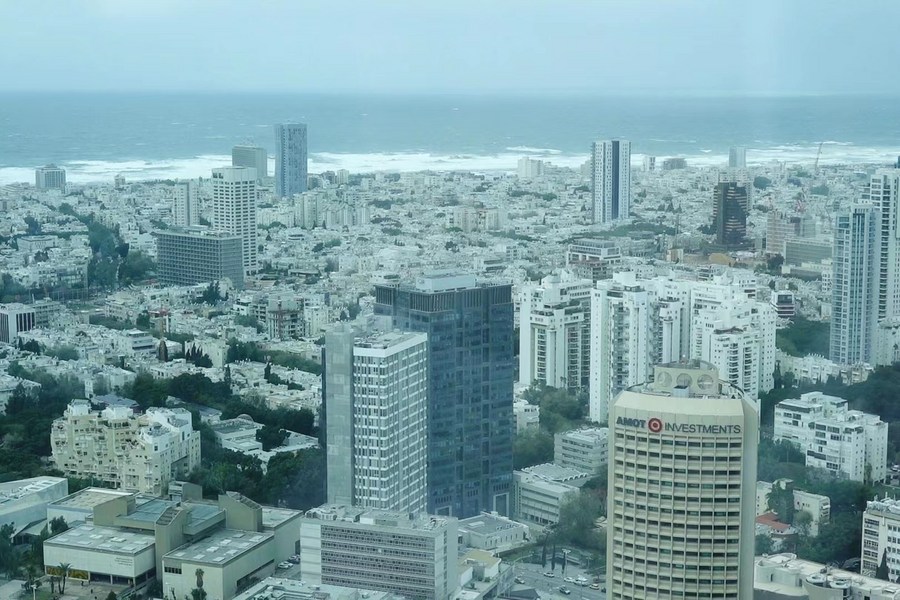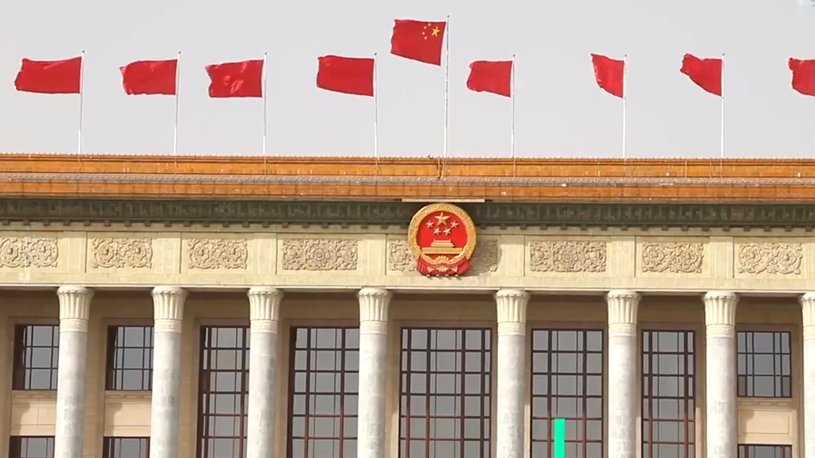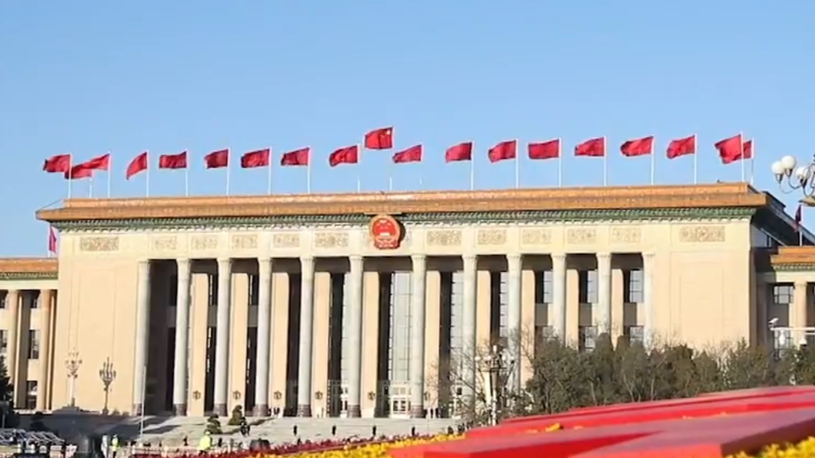Overtaking Paris, Tokyo, and New York, Tel Aviv has become the most expensive city globally to live in. How did the coastal city in Israel become so?
by Xinhua Writers Wang Zhuolun and Shang Hao
TEL AVIV, March 15 (Xinhua) -- As Tuesday marks World Consumer Rights Day, do you know for an ordinary consumer, which city is the most costly to live in the world?
Overtaking Paris, Tokyo, and New York, Israel's coastal metropolis Tel Aviv is now ranked the most expensive city globally, according to a report released by the Economist Intelligence Unit (EIU). How did Tel Aviv become the most expensive city to live in?

Photo taken on March 11 shows a bird's eye view of Tel Aviv at the Azrieli Center. (Xinhua/Wang Zhuolun)
STRONGER CURRENCY
Tel Aviv topped the rankings mainly because the appreciating Israeli currency new shekel against the U.S. dollar has made local costs more expensive, the EIU said in its 2021 Worldwide Cost of Living report.
The exchange rate of the new shekel has strengthened to 3.074 against the U.S. dollar on Nov. 17, 2021, the highest since 1995, then dipped to an average of 3.174 for the first two months of 2022, according to data released by the Bank of Israel, still higher than the 3.4-3.7 level between 2018 and 2020.
As with all products, the price of the currency depends on supply and demand. "The high price of the new shekel reflects the fact that the demand for the shekel is higher than supply," the report explained.
The country's strong current-account surplus, attractiveness to foreign technology investors and sound fundamentals are believed as key factors to keep the new shekel strong.
The Israeli capital inflow as a result of acquisitions of companies, mainly in the technology sector, entails a rise in demand for shekels, noted Benjamin Bental, chair of the economic policy program at the Taub Center.

Photo taken on March 11 shows customers checking out at a store in Tel Aviv's Azrieli Center. (Xinhua/Wang Zhuolun)
Moreover, Israel saw a 7 percent economic growth in 2021, and the high COVID-19 vaccine rollout has accelerated economic resurgence. The country's exports hit a record high of 140 billion U.S. dollars in 2021, up 18 percent from the previous year, with the high-tech sector leading the way, according to its Economy and Industry Ministry.
IRREPLACEABLE METROPOLIS
The EIU report found that "the prices of around one-tenth of goods in Tel Aviv rose significantly, led by the shopping basket, comprising groceries, the price of household goods, cars and fuel."
As the price hikes of electricity and fuel in Israel took effect from February 2021 nationwide, electricity prices in the country rose by 5.7 percent to private consumers and by 10 percent to businesses, while the price of one liter of 95-octane gasoline rose by 5.34 percent to 6.71 new shekels, the highest fuel price in Israel over the past seven years.
Property prices have also soared, especially in residential areas. Housing prices in the city have increased by 40 percent in two years, local media reported.

Photo taken on March 11 shows a landmark statue at Tel Aviv's port. (Xinhua/Wang Zhuolun)
"Tel Aviv will become increasingly more expensive, just as the entire country is becoming more expensive," said Tel Aviv-Jaffa Mayor Ron Huldai, adding that the fundamental problem is that there is no alternative metropolitan center in Israel.
According to statistics of the International Monetary Fund, the per capita GDP of Israel exceeded 44,000 U.S. dollars in 2021, ranking around 20 in the world. As the Israeli economic center, Tel Aviv contributed almost half of the country's GDP in the past few decades.
"As a high-tech hub, the higher income of people in Tel Aviv has put a lot of pressure on prices, particularly on real estate prices. So the city comes unaffordable for the working-class residents," said Bental, who is also professor emeritus of economics at the University of Haifa.
UNCHANGED SALARY
Official statistics show residents in Tel Aviv earn 9 percent higher than Israel's average, but the city's high living costs have inflamed much public discontent.
On Feb. 16, thousands of people demonstrated against the rising cost of living at Habima Square in Tel Aviv, a week after the Israeli government announced a 4.4-billion-new shekels (about 1.34 billion dollars) plan to address the issue.

Photo taken on March 11 shows a store for drinks at Tel Aviv's Sarona Market. (Xinhua/Wang Zhuolun)
"The public is starting to cry out and take to the streets and this is only the start," the organizer Guy Lerer was reported as saying.
The plan announced on Feb. 9 includes tax cuts for working families and some agri-imports as well as energy and food subsidies for low-income households.
The Tel Aviv-Yafo Municipality has pinned the slogan "Lowering the cost of living" to the top of its official website's homepage, showing its determination. It also announced an unprecedented investment of estimated 120 million new shekels to cut the city's cost of living.
"Residents will soon enjoy a reduction of thousands of shekels per family for key services such as education, welfare, and community and leisure activities," it said.
Since April 2018, the minimum wage in Israel has remained at 5300 new shekels per month. According to a joint announcement in November 2021 by the Finance Ministry, the Bank of Israel, and major labor organizations, the Israeli government is set to gradually increase the monthly minimum wage to 6,000 new shekels by 2025.
Nonetheless, whether the policy can be fully implemented remains uncertain. A report by workers' rights organization Kav LaOved found that 11 percent of the workforce in Israel has failed to get the legally mandated minimum wage. ■












